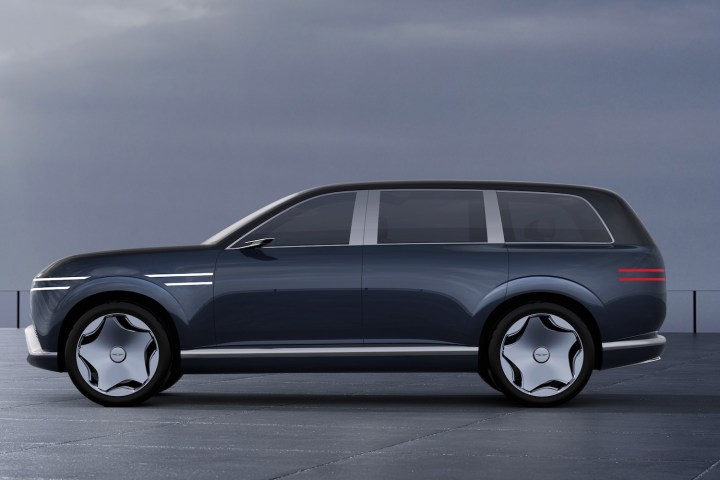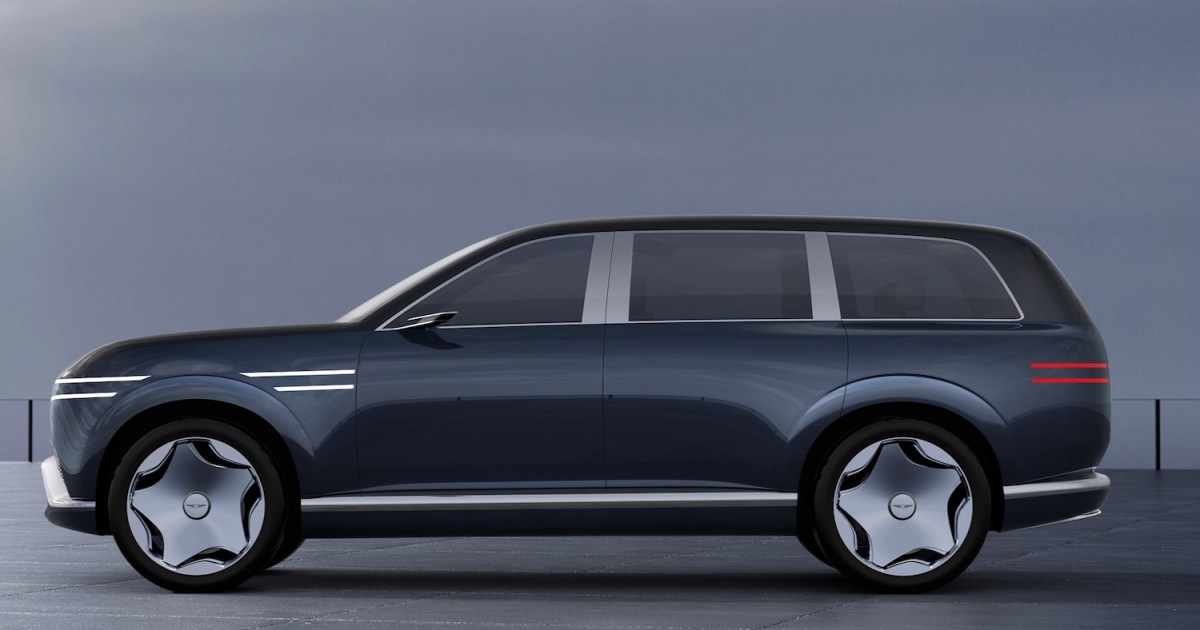
Luxury SUVs have a familiar template: acres of leather, a high-end audio system, and some quality seat massagers. Unveiled ahead of the 2024 New York Auto Show, the Genesis Neolun, an EV concept previewing a future flagship SUV from the Korean brand, does things a little differently.
Like many traditional SUVs, the Neolun isn’t small. But designers didn’t try to hide its bulk with a clean-and-simple design that, according to Genesis, is inspired by traditional Korean moon-shaped porcelain jars.
“Each discussion we had was about taking away,” Genesis chief creative officer Luc Donckerwolke said during a panel discussion at the Neolun’s reveal. That left plain surfaces that give this electric SUV an almost retro feel, adorned only with Tron-like lighting elements, a few splashes of chrome, and massive wheels worthy of a Maybach.
Like luxury cars of old, the Neolun also lacks a roof pillar between the doors. It might make passing side-impact crash tests difficult, but this, along with the old-school rear-hinged coach doors, creates an unobstructed space that makes entering and exiting the car more of an occasion.
Instead of conventional climate control, the Neolun uses traditional Korean ondol radiant heating. This heats the floor and door panels instead of blowing hot air around the cabin — something that could perhaps be more energy efficient than standard car heating systems and thus help eke out a few more miles of range in cold weather.
And while some automakers are using software features to make spending time in your car feel more like spending time in your living room, Genesis has actually rearranged the interior for a homier feel. When parked, the front seats swivel to create more space in the back, the central display screen moves to give all occupants a better view when watching movies, and a rear screen deploys from the ceiling, as in the BMW i7.
Genesis didn’t provide any specifications, but it’s easy to imagine a production version of the Neolun using the same E-GMP platform as the similar-sized Kia EV9. That production version is coming “sooner rather than later,” Donckerwolke said, but an exact timeline has not been set.
Editors’ Recommendations

